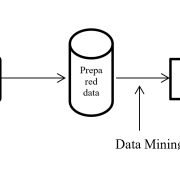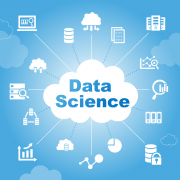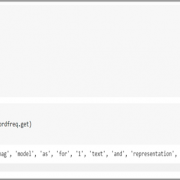Connections Between Data Science & Finance
Image Source: pixabay.com
The world of finance is changing at an unprecedented rate. Data science has completely altered the face of traditional finance management. Though data has long been a critical component to finances, the introduction of big data and artificial intelligence have created new tools that are strengthening the predictive ability of many financial institutions.
These changes have led to a rapid increase in the need for financial professionals with data science skills. Nearly every sector in finances is converting to greater use of data science and management from the stock market and retirement accounts to credit score calculation. A greater understanding of the interplay between data and finance is a key skill gap.
Likewise, they have opened many doors for those that are interested in analyzing their personal finances. More and more people are taking their finances into their own hands and using the data tools available to make the best decisions for them. In today’s world, the sky’s the limit for financial analysis and management!
The Rise of the Financial Analyst
Financial analysts are the professionals who are responsible for the general management of money and investments both in an industrial and personal finance realm. Typically a financial analyst will spend time reviewing and understanding the overall stock portfolio and financial standing of a client including:
- Stocks
- Bonds
- Retirement accounts
- Financial history
- Current financial statements and reports
- Overarching business and industry trends
From there, the analyst will provide a recommendation with data-backed findings to the client on how they should manage their finances going into the future.
As you can imagine, with all of this data to analyze, the need for financial analysts to have a background or understanding of data science has never been higher! Finance jobs requiring skills such as artificial intelligence and big data increased by over 60% in the last year. Though these new jobs are typically rooted in computer science and data analytics, most professionals still need a background in financial management as well.
The unique skills required for a position like this means there is a huge (and growing) skills gap in the financial sector. Those professionals that are qualified and able to rise to fill the need are seeing substantial pay increases and hundreds of job opportunities across the nation and the globe.
A Credit Score Example
But where does all of this data science and professional financial account management come back to impact the everyday person making financial decisions? Surprisingly, pretty much in every facet of their lives. From things like retirement accounts to faster response times in financial analysis to credit scores — data science in the financial industry is like a cloaked hand pulling the strings in the background.
Take, for example, your credit score. It is one of the single most important numbers in your life, for better or worse. A high credit score can open all sorts of financial doors and get you better interest rates on the things you need loans for. A bad score can limit the amount lenders willing to qualify you for a loan and increase the interest rate substantially, meaning you will end up paying far more money in the end.
Your credit score is calculated by several things — though we understand the basic outline of what goes into the formula, the finer points are somewhat of a mystery. We know the big factors are:
- Personal financial history
- Debit-credit ratio
- Length of credit history
- Number of new credit hits or applications
All of this data and number crunching can have a real impact on your life, just one example of how data in the financial world is relevant.
Using Data Science in Personal Finance
Given all this information, you might be thinking to yourself that what you really need is a certificate in data science. Certainly, that will open a number of career doors for you in a multitude of realms, not just the finance industry. Data science is quickly becoming a cornerstone of how most major industries do business.
However, that isn’t necessarily required to get ahead on managing your personal finances. Just a little information about programs such as Excel can get you a long way. Some may even argue that Excel is the original online data management tool as it can be used to do things like:
- Create schedules
- Manage budgets
- Visualize data in charts and graphs
- Track revenues and expenses
- Conditionally format information
- Manage inventory
- Identify trends in large data sets
There are even several tools and guides out there that will help you to get started!
***
Data analysis and management is here to stay, especially when it comes to the financial industry. The tools are likely to continue to become more important and skills in their use will increase in value. Though there are a lot of professional skills using big data to manage finances, there are still a lot of tools out there that are making it easier than ever to glean insights into your personal finances and make informed financial decisions.










Leave a Reply
Want to join the discussion?Feel free to contribute!